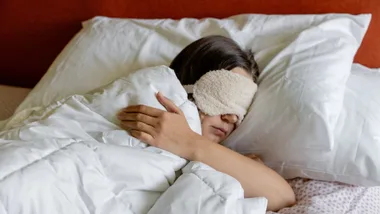Women’s health has traditionally been under-researched, but as the focus begins to shift, we’re starting to realise that the change of life is much more complicated than many thought. For one thing, menopause doesn’t happen in just one act, but in three. Knowing exactly what each phase can bring will help give you peace of mind.
Once you know which stage of menopause you’re in, you can better consider your options to aid your symptoms, like hormone replacement therapy (HRT). Here we take you through each of the stages and how to know if you should consider HRT…
1. Perimenopause
As our ovaries wind down, our sex hormones also begin to peter out – but not before taking us on one last rollercoaster ride. This is known as perimenopause. While it lasts an average of five years, it can range from just a few months to a decade. This can be a turbulent time, although it may take a while to realise what’s happening.
“Women can experience a range of physical and emotional symptoms that may interfere with an accurate diagnosis,” says women’s health specialist Dr Lesley Ramage.
Common symptoms include sleep disturbance, hot flushes, irregular periods, mood swings, night sweats, breast tenderness, poor concentration, aching joints, weight gain (often around the abdomen), dry, itchy skin, vaginal dryness, low libido, migraines and increasingly severe PMS symptoms.
“One in five women will have very subtle symptoms, but most women will have some degree of disturbance,” says Lesley. “A further one in five women experience severe symptoms that have a major impact on their quality of life.” About 70 percent of women have significant symptoms.

2. Menopause
The most famous stage is also the shortest – essentially, it’s the moment when you’re considered to have ceased menstruating.
“Menopause literally means the last period, so it is only one day,” Lesley explains.
Many find their menstrual cycles become shorter during the early stages of menopause. But, periods will often become heavier and less frequent.
You are officially considered to be in menopause when it has been 12 consecutive months since your last period. Until then, Lesley says you should practise the same precautions.
She explains, “Contraception should be considered and methods continued for two years if a woman has her last period under age 50, and for one year if the last menstrual period is over 50.”
The good news is that many peri symptoms will start to ease. “After the final period, there are fewer hormonal fluctuations. This means that symptoms that are cyclical (migraines, breast tenderness, vaginal bleeding etc) tend to improve,” says Lesley.
Fun fact: The average age for menopause in New Zealand is 52, and the average duration of menopausal symptoms is five years – although some women will have symptoms for longer.

3. Postmenopause
Many women will say this is the time when they embrace their best years. Most of your peri symptoms should dissipate, although Lesley says it’s common to require long-term treatment for vaginal dryness and irritation.
It’s a good idea to book a long appointment with your doctor to chat through any concerns. There, you can also discuss potential treatments (depending on your symptoms, you might like to do this earlier in your menopause journey).
At this stage, it becomes increasingly important to stay up-to-date with health checks such as mammograms and bowel cancer screenings. You should also continue your cervical screenings and heart health checks.
“It’s helpful to prepare for your future wellbeing. A healthy diet, combined with a variety of physical activities, is recommended,” tells Lesley.
Is HRT right for me?
Hormone replacement therapy (HRT), when used for relieving symptoms of menopause, is now called menopause hormonal therapy (MHT). HRT is now the term when it’s used to replace oestrogen in cases where menopause is not the cause. If considering MHT, Dr Sneha Wadhwani says to chat with your doctor to find out the best solution for you. “It’s a great option for managing menopausal symptoms, but it must be tailored to each individual, weighing up the personal medical history, family history, lifestyle factors and desired outcome,” she says.
For more tips and tricks on combatting you menopause symptoms, visit healthify.nz/hauora-wellbeing/m/menopause/
 Images: Getty
Images: Getty










